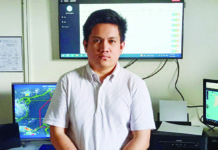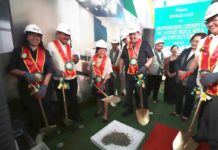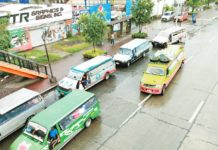
[av_one_full first min_height=” vertical_alignment=” space=” custom_margin=” margin=’0px’ padding=’0px’ border=” border_color=” radius=’0px’ background_color=” src=” background_position=’top left’ background_repeat=’no-repeat’ animation=”]
[av_heading heading=’Cities may run dry by 2015; wastewater offers way out’ tag=’h3′ style=’blockquote modern-quote’ size=” subheading_active=’subheading_below’ subheading_size=’15’ padding=’10’ color=” custom_font=”]
BY GLENDA SOLOGASTOA
[/av_heading]
[av_textblock size=” font_color=’custom’ color=”]
Thursday, March 23, 2017
[/av_textblock]
[av_textblock size=” font_color=” color=”]
ILOILO City – Domestic wastewater from washing dishes, clothes and cars, from taking a bath, cleaning the car or cooking can be reused if treated properly.
Singapore is doing this and in the process has attained “100 percent water security,” said Engr. Jose Serafin Tecson, sanitation team leader of the United States Agency for International Development (USAID) Water Security for Resilient Economic Growth and Stability (Be Secure) Project.
He warned that by 2025, a lot of cities in the Philippines will run dry.
The Philippines can replicate Singapore’s feat, said Tecson at the Iloilo provincial capitol on Tuesday ahead of yesterday’s World Water Day celebration.
Singapore used to depend on Indonesia for its population’s water needs but not anymore, said Tecson.
This year’s World Water Day focused on wastewater management and sanitation.
Tecson said the “orientation” of Filipinos on wastewater needed to change.
“We must view wastewater we are generating everyday as a potential source of water for domestic use,” he said.
He urged local governments and the private sector to explore wastewater treatment projects
“The business sector needs to do more. It has the resources it could share within the community,” said Tecson.
Republic Act 9275 (Philippine Clean Water Act of 2004) requires the public to “treat wastewater and safeguard wastewater resources.”
“As early as now, let’s think about this. How can we generate additional water supply and manage the demand,” said Tecson.
USAID’s four-year Be Secure Project has trained 1,800 people in this city and Iloilo province for improved water and sanitation.
This year’s World Water Day supports the Sustainable Development Goal 6.3: “By 2030, improve water quality by reducing pollution, eliminating dumping and minimizing release of hazardous chemicals and materials, halving the proportion of untreated wastewater and increasing recycling and safe reuse globally.”/PN
[/av_textblock]
[/av_one_full]



